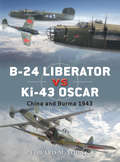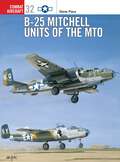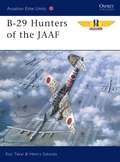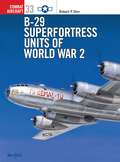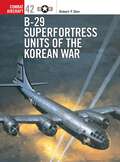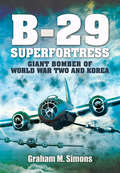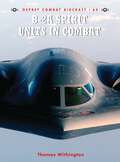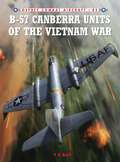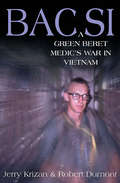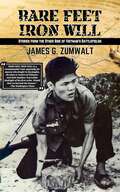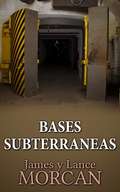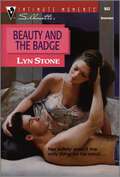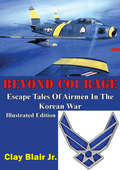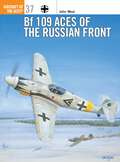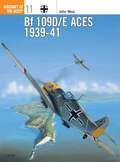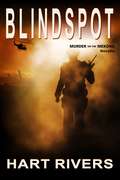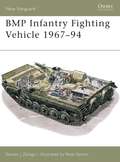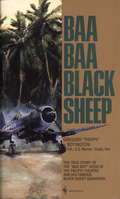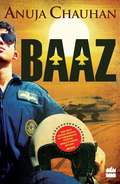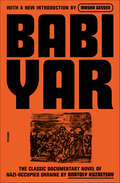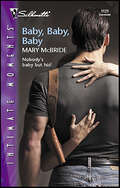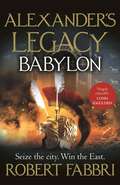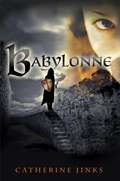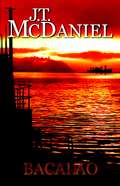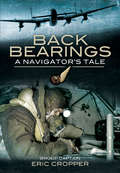- Table View
- List View
B-24 Liberator vs Ki-43 Oscar
by Jim Laurier Edward YoungDuring the late 1930s an armament race developed between bombers and the fighters that were bent on stopping them. The development of multi-engined, multi-gun, all-metal bombers forced a corresponding increase in fighter armament which, in turn, led to further attempts to improve bomber armament to ensure its ability to survive in the face of hostile fighters. The US Army Air Corps (USAAC) requested that powered gun turrets be fitted to its two principal long-range bombers, the B-17 Flying Fortress and the B-24 Liberator. In reviewing reports of air combat from Spain, China and the early stages of the war in Europe, the USAAC assumed that the greatest danger to the bomber would be attacks from the rear quarter, and thus took steps to ensure that both the B-17 and the B-24 had tail turrets. A powered turret above and behind the cockpit could deal, it was felt, with attacks from the frontal quarter so that the nose armament for the B-17 and the B-24 consisted of several hand-held 0.50-cal machine guns, but not a powered turret. German and Japanese fighter pilots would soon discover and exploit this weakness. The JAAF's response to the increase in bomber armament was to develop a so-called heavy fighter in parallel to the development of the Army's main fighter, the Ki-43 Hayabusa (known as the 'Oscar'), which sacrificed armament for superior manoeuvrability. Yet the inability of the Japanese aircraft industry to produce these heavier fighters (the Kawasaki Ki-60 and Nakajima Ki-44) in sufficient quantities meant that the JAAF had no alternative but to rely on the Ki-43 to intercept American heavy bombers. Under the ideal conditions that existed in the Burma and China theatres for much of 1943, the absence of escort fighters allowed the Ki-43 pilots to press home their attacks to devastating effect.
B-25 Mitchell Units Of The Mto
by Steve PaceOsprey's study of the role played by the B-25 Mitchell bombers in the Mediterranean Theater of Operations during World War II (1939-1945). From November 1942 through to May 1945, the backbone of the USAAF’s medium bomber force was provided by the clutch of bomb groups equipped with the B-25 Mitchell. First seeing action in North Africa in the wake of Operation Torch, and in the Battle of El Alamein, the ‘bombing twin’ proved to be one of the most successful allied combat types in the Mediterranean Theatre of Operations (MTO). The first of four volumes planned for the Combat Aircraft series on the Mitchell, this title includes first-hand accounts, 30 colour profiles and more than 100 colour and black and white photographs of the B-25 in the MTO.
B-29 Hunters of the JAAF
by Koji Takaki'B-29!' No other term struck such terror in the hearts of the Japanese public during World War 2 than this single, most-hated name. It was then only natural that the pilots who attempted to shoot these high-flying Boeing bombers out of the skies over Tokyo, Nagasaki, Hiroshima and Kobe should become known as the elite of the Japanese Army Air Force. This book details the exploits of the ‘Dragon Slayers’ who, flying the very latest single- and twin-engined fighters, exacted a heavy toll on the AAF Boeing bombers using a range of tactics including ramming.
B-29 Superfortress Units of World War 2
by Mark Styling Robert DorrThe ultimate piston-engined heavy bomber of World War II (1939-1945), the first production B-29s were delivered to the 58th Very Heavy Bomb Wing in the autumn of 1943. By the spring of 1944 the Superfortress was bombing targets in the Pacific, and by war's end the aircraft had played as great a part as any weapon in ending the conflict with the Japanese. Indeed, the final dropping of two atomic bombs from the B-29 convinced the Japanese to sue for peace. This book traces the wartime career of the B-29, as the aircraft went from strength to strength in the Pacific Theatre.
B-29 Superfortress Units of the Korean War
by Mark Styling Robert DorrThis book is the story of a majestic bomber of the propeller era flying perilous combat missions against a sleek, nimble warplane of the jet age, the Soviet MiG-15. A very heavy bomber and a sky giant during World War II, at that time the B-29 was the most advanced combat aircraft in the world. By the time North Korea attacked its southern neighbour in 1950, thus starting the Korean War (1950-1953) the B-29 had been reclassified a medium bomber. Many of its crew members had fought their war and settled down to raise families and begin careers only to be recalled to fight another war on a distant Asian peninsula.
B-29 Superfortress: Giant Bomber of World War Two and Korea
by Graham M. Simons&“A well written history of a history-changing aircraft,&” the bomber that carried the two atomic bombs that destroyed Hiroshima and Nagasaki in WWII (Aeromilitaria). The Boeing B-29 Superfortress was a four-engined heavy bomber flown primarily by the United States in World War Two and the Korean War. The name &“Superfortress&” was derived from that of its well-known predecessor, the B–17 Flying Fortress. The B-29 was the progenitor of a series of Boeing-built bombers, reconnaissance aircraft, trainers and tankers including the variant, B-50 Superfortress. The B-29 was one of the largest aircraft to see service during World War Two. A very advanced bomber for its time, it included features such as pressurized cabins, an electronic fire-control system and remote-controlled machine-gun turrets. Though it was designed as a high-altitude daytime bomber, in practice it actually flew more low-altitude nighttime incendiary bombing missions. It was the primary aircraft in the American firebombing campaign against Japan in the final months of World War Two. Unlike many other World War Two-era bombers, the B-29 remained in service long after the war ended, with a few even being employed as flying television transmitters. The type was finally retired in the early 1960s, with 3,960 aircraft in all built. Without doubt there is a clear, strong requirement to &“put the record straight&” using primary source documentation to record the undoubted achievements alongside and in context with the shortcomings to the type&’s design and operation that have otherwise received scant attention. The book covers all variants and is profusely illustrated.
B-2A Spirit Units in Combat
by Chris Davey Thomas WithingtonThe B-2A 'Spirit' was an aircraft conceived to fight the Cold War (1946-1991) but which has proved invaluable to both the 'New World Order' and more recently the 'War on Terrorism'. The combination of low-observability, precision strike, range and payload flexibility has made the 'Spirit' the weapon of choice when America hits its enemies at the start of a campaign. Spirits have fired the first shots of Operation 'Allied Force' over Kosovo and Serbia, as well as operations 'Enduring Freedom' (2001-present) and 'Iraqi Freedom' (2003-present). Despite the tremendous cost of the aircraft - each unit is literally worth its weight in gold - the B-2 has had an impact on modern warfare which has vastly exceeded this small force of 21 bombers. Developed in utmost secrecy, the B-2's gestation saw the use of new computer design and manufacturing techniques and ultra-modern synthetic materials making it the most revolutionary aircraft in terms of design and performance. This book examines these incredible aircraft.
B-57 Canberra Units of the Vietnam War
by Jim Laurier T BellOsprey's examination of B-57 Canberra Units during the Veitnam War period (1955-1975). While not receiving as much publicity as the F-105 and F-4 fighter-bombers, which took the fight into the heart of North Vietnam, the B-57 Canberra was nevertheless the first jet-powered American attack aircraft committed to the conflict. It was involved in day-to-day interdiction missions against traffic coming down the Ho Chi Minh Trail, shooting up trucks and bombing and strafing sampans in the Mekong Delta. And, not least, the aircraft flew classified 'black' missions over the border into Laos and Cambodia. The B-57B medium bomber began hitting targets in North and South Vietnam at the beginning of 1965. Although B-57B crews had already made a name for themselves during the hair-raising night missions during Op Rolling Thunder, late in the war many aircraft were upgraded to the then-state-of-the-art B-57G Night Intruder, which became one of the most valuable weapons in the USAF inventory. The B-57E, in its electronic eavesdropping and countermeasures roles, starred in the so-called Patricia Lynn missions, parts of which are still classified today. Also operating alongside the USAF B-57 units, were the Canberra B 20s of the Royal Australian Air Force,attached to the USAF's 35th Bomb Wing - the exploits of the Australian Canberras will be fully documented in this book. The unit flew interdiction missions in support of troops in the field from 1967 to 1971. At the time the Canberra was called to action, the USAF, which considered the aircraft too slow, limited in its mission and not 'sexy' enough, was attempting to phase it out of the inventory. In the event, the B-57 continued to serve for another 20 years, echoing the story of the A-10 Warthog. The author has obtained scores of previously unpublished photographs from the first deployment of the B-57s to Bien Hoa, all the way up to very rare photos of the B-57G being armed and readied for night combat missions. The story of the B-57 in Vietnam has never been told in detail, and since the aeroplane served in virtually every role for the duration the US involvement in Vietnam, the story of the B-57 is, in effect, the story of that war.
BAC SI: A Green Beret Medic's War in Vietnam
by Robert Dumont Jerry KrizanA Special Forces medic delivers &“a fascinating account of an unfamiliar part of the Vietnamese War, written in a compelling style&” (History Of War). During the Vietnam War, US Army Special Forces A-Teams were deployed to isolated outposts or &“camps&” in the remote areas of South Vietnam. Their job was to recruit, train, and house members of the indigenous population while molding them into combat-ready fighting units. A-Teams consisted of up to twelve Green Beret soldiers who were experts in both combat and their individual military specialties.Bac Si, the Vietnamese term for &“medic,&” is the story of Sgt. Jerry Krizan, who was assigned to Special Forces Camp A-331 in the III Corps tactical zone, only ten miles from the Cambodian border. Because of its proximity to a major north-south North Vietnamese Army infiltration route, there were constant enemy troop movements through the camp&’s area of operations and A-331 itself came under attack on more than one occasion. The author accompanied patrols and probes into enemy territory, not only prepared to provide aid but fight as a soldier if the squad was ambushed or chose to attack. In this small-unit warfare against an expert enemy, US soldiers had to survive as best they could, with their only succor a Huey—meantime, on the ground, by themselves against unknown opposition. Our Green Beret base camps were our very first line of defense along the borders of South Vietnam, and in this book, through the eyes of a medic, we learn how dire, and confusing, a role we asked our Special Forces to play during that era.
BARE FEET, IRON WILL: Stories from the Other Side of Vietnam's Battlefields
by James G. ZumwaltEver since the American Revolution, military service has been a proud tradition for the Zumwalt family. Tradition initially led the author to join his father and brother in the Navy, before later transferring to the US Marine Corps. During his 26 years in uniform, the author saw service in three conflicts-Vietnam, Panama and the first Persian Gulf war. It was Vietnam, however, that ultimately would launch him on an unexpected journey-long after the guns of that war had fallen silent-triggered by the loss of a brother who had fought there. This journey was an emotional one-initially of anger towards the Vietnamese and the conflict that claimed his older brother. But it unexpectedly took a change in direction. In Vietnam almost two decades after Saigon's fall, the author, in a private talk with a former enemy general officer, came to understand an aspect of the war he never before had. In that talk, they shared personal insights about the war-discovering a common bond. It unlocked a door through which the author passed to start his own healing process. It began a journey where he would meet hundreds of North Vietnamese and Viet Cong veterans-listening to their personal stories of loss, sacrifice and hardship. It opened the author's eyes to how a technically inferior enemy, beaten down by superior US firepower, was able to get back up-driven by an "iron will" to emerge triumphant. "Bare Feet, Iron Will" takes the reader on a fascinating journey, providing stories-many never before told-as to how enemy ingenuity played a major role in the conflict, causing us not to see things that were there or to see things there that were not! It shares unique insights into the sacrifice and commitment that took place on the other side of Vietnam's battlefields. About the Author JAMES G. ZUMWALT Lieutenant Colonel James Zumwalt is a retired Marine infantry officer who served in the Vietnam war, the 1989 intervention into Panama and Desert Storm. An author, speaker and business executive, he also currently heads a security consulting firm named after his father-Admiral Zumwalt & Consultants, Inc. He writes extensively on foreign policy and defense issues, having written hundreds of articles for various newspapers, magazines and professional journals. His articles have covered issues of major importance, oftentimes providing readers with unique perspectives that have never appeared elsewhere. His work, on several occasions, has been cited by members of Congress and entered into the US Congressional Record.
BASES SUBTERRANEAS
by Adriana Rojas James Morcan Lance Morcan¿Alguna vez te has preguntado lo que yace bajo nuestros pies? ¿Qué obtienen las superpotencias del mundo levantar sus bunkers secretos subterráneos? BASES SUBTERRANEAS detalles de confirmadas y rumoradas instalaciones subterráneas en Estados Unidos y alrededor del mundo. Conteniendo rara evidencia fotográfica a través de, así como poco conocidas frases de figuras clave gubernamentales, hace un caso competente para que haya un enorme mundo escondido majo la superficie de la Tierra. Los marroquís especulaban que la encubierta infraestructura subterránea puede ser por mucho la más grande que cualquier antes pudo haber supuesto y es posiblemente usada para el desarrollo de tecnologías suprimidas. Sus fuentes incluyen archivos desclasificados, reportes universitarios, documentos de WikiLeaks y entrevistas con personal exmilitar convertidos en soplones que aclaman haber trabajado en “ciudades bajo el suelo”. Bases Subterráneas da una amplia gama de hechos y teorías que ultimadamente permite a los lectores formar sus propias conclusiones. La exposición cubre todo desde: las áreas de evacuación verificadas del Departamento de Defensa de los Estados Unidos bajo la Casa Blanca y el Pentágono, así como sus sitios reconocidos en Mount Weather y Cheyenne Mountain; instalaciones subterráneas en todo el mundo, incluyendo el extenso complejo Mezhgorye de Rusia y la Pine Gap de Australia, administrada por la CIA; los titulares de los periódicos que se habían olvidado hace mucho tiempo y que decían que Adolf Hitler y los altos oficiales de las SS podrían haber construido una colonia nazi bajo la Antártida después de la Segunda Guerra Mundial; los rumores de que las empresas conjuntas entre humanos y extraterrestres están ocurriendo bajo la tierra y que los ciudadanos secuestrados están siendo detenidos en prisiones subterráneas para la experimentación médica ilegal, como la clonación. ¿Por qué la Elite Glob
BEAUTY AND THE BADGE
by Lyn StoneORDINARY DREAMSPreschool teacher Mary Shaw craved nothing more adventurous than car pools and cookie baking. Then FBI agent Ford Devereaux swept her off her feet-literally-and into his murky, perilous world. Did she dare believe her muscular, magnificent captor when he promised to protect her?EXTRAORDINARY CIRCUMSTANCESFord had Mary's best interests in mind-so he'd abducted her and almost gotten her shot. No wonder she seemed less than thrilled about being alone with him! But a murderer was stalking her, and Ford had a job to do. First, he'd save Mary's life-then he'd convince her to spend the rest of it with him!
BEYOND COURAGE: Escape Tales Of Airmen In The Korean War [Illustrated Edition]
by Clay BlairIncludes ten illustrations and one map.Clay Blair, Jr., close to Air Force headquarters during the Korean war, heard, as did everyone there, fascinating stories of Air Force pilots who had crashed or been shot down behind enemy lines and then managed, by one means or another, often enduring incredible hardships, to make their way back to U.N. lines. However, at the time, these stories were highly classified and not available for publication. Now Mr. Blair has been allowed to go through these secret files and has studied the full details of these dramatic escapes. The most exciting of these he presents in this book. In addition he has interviewed the men themselves to fill in any missing links in the stories they gave to Air Force officers shortly after their rescue, and to recapture their own personal reactions to their amazing adventures. Here are unbelievable accounts of the U.N. forces in Korea—for the stories are peopled, not just with Americans, but with Turks and Greeks and ROK’s and friendly North Korean Christians, who often risked their lives to help downed airmen. You can feel the cold and agony of walking forty miles over mountains in temperatures of thirty degrees below with your feet frozen; the horror of spending more than a month in holes dug in the ground only slightly larger than a coffin; the torture of treatment— or lack of it—in a Communist POW hospital; the shattering loneliness of a month on a deserted island — with friendly planes flying over almost every day and ignoring you. How did one man survive when another failed? What gives some men a courage that surpasses comprehension? How is it possible to live through such experiences and be willing to risk them again? All these questions and many more are answered by Mr. Blair, himself a veteran of Navy submarine warfare, in this startling, thrilling account of Americans at their heroic best.
BF 109 Aces of the Russian Front
by John WealThe highest scoring aces of any aerial conflict were the Luftwaffe pilots involved in the bloody combats on the Russian Front. The most common fighter used by these pilots was the Bf 109, which was involved in the action from Operation Barbarossa in June 1941, through to the doomed Defence of the Reich in 1945. Units like JGs 5, 52 and 54 all flew the Messerschmitt fighter, progressing from Emil to Gustav variants. This volume includes all the high-scoring aces, and explains just how difficult a job the Jagdwaffe faced on the Russian Front, and how its experts achieved such overwhelming scores.
BF 109D/E Aces 1939 - 41
by John WealThe period covered in this volume was considered to be the 'glory years' for the Jagdwaffe - fresh from the experience gained in the Spanish Civil War - and for the Bf 109 in particular. Many famous pilots scored their first kills in the classic dogfights staged over Poland, Western Europe, the Channel and finally southern England. Some 40 Knight's Crosses were awarded in 1940 alone. However, after sweeping all before them in support of the Blitzkrieg across continental Europe, the Bf 109E pilots were to suffer badly during the Battle of Britain, the result of poor tactics inflicted upon them by the Luftwaffe High Command, and their mount's less then generous range.
BLIND SPOT: Vietnam War Psychological Thriller (Murder on the Mekong)
by Hart RiversWhen A CIA Assassin's Lover is Kidnapped, There Will Be Killing in BLIND SPOT, a Murder on the Mekong Novella by Hart Rivers-- The Highlands Jungle, Vietnam, 1969-70 --J.D. Mikel is an enigma of a man, a CIA agent of many disguises. Seemingly a man without a heart and invulnerable, he's fallen in love with Kate Morningside.JD realizes his BLINDSPOT when Kate is kidnapped by The Pale Man, a wealthy sadist competing for the lucrative heroin trade in Vietnam.To save Kate, JD needs the help of his step-brother, Zhang, who owns the poppy fields the CIA is determined to get their hands on. JD goes in search of Zhang as trouble follows him into the jungle Highlands in the midst of the Vietnam War and straight to a group of trained killers.Publisher's Note: Readers should be prepared for death and graphic violence consistent with the true nature of the poppy trade and the Vietnam war. BLINDSPOT is a tightly woven psychological thriller novella that reflects the real-world experience and knowledge of the author team. Fans of Dan Hampton, Larry Chambers, Joe Hart, Doug Stantan and Karl Marlantes will not want to miss this military historical fiction series."Smart, well-crafted, and tense!" ~The Book Review"What a roller coaster ride of a story! Impossible to put down . . . everything a page turning book should be." ~Book Bug". . . dirty and gritty, showing a not often seen side of the Vietnam War." ~Shannon GonzalezonMurder on the Mekong SeriesUNBREAKABLEBLINDSPOT (novella)UNKNOWABLEUNSPEAKABLEMeet the Authors: Hart Rivers is the pen name for bestselling co-authors John L. Hart and Olivia Rupprecht. John, Creator of the Murder On The Mekong series, has been a practicing psychotherapist for over 40 years, starting in Vietnam where he was a psychology specialist. He received his doctorate from the University of Southern California, is an internationally respected lecturer, has been a consultant to the nation of Norway for their Fathering Project, and maintained a private practice in Los Angeles for twenty years. His time is divided between Hawaii--where he enjoys snorkeling, stand up paddle boarding, and is a featured artist at the Mauna Kea Hotel—and Vancouver Island, B.C., where he is an adjunct associate professor at the University of Victoria in British Columbia.Olivia is an award-winning author whose novels have sold worldwide, and Series Developer of True Vows, the groundbreaking series of reality-based novels from HCI Books. She lives in a historic tavern on a lake in Wisconsin
BMP Infantry Fighting Vehicle 1967-94
by Steven Zaloga Peter SarsonThe Russian BMP infantry fighting vehicle (IFV) was one of the most significant innovations in infantry tactics in the latter half of the 20th century. Built in response to the threat of nuclear warfare, it was the world's first IFV, providing the infantry squad with unprecedented firepower, mobility and protection. With over 55,000 manufactured since 1966, the BMP is also numerically one of the most important armoured vehicles ever built. This richly illustrated book examines the development and design of the BMP, detailing its armaments, performance in combat and variants.
Baa Baa Black Sheep: The True Story of the "Bad Boy" Hero of the Pacific Theatre and His Famous Black Sheep Squadron (Literature And History Of Aviation Ser.)
by Gregory BoyingtonThe true story of the "bad boy" of the Pacific theatre and his famous Black Sheep squadron. The American World War II fighter pilot tells of his daring combat missions, his experiences in Japanese prison camps, and his ten-year struggle against alcoholism.
Baaz
by Anuja Chauhan1971. The USSR-backed India-Mukti Bahini alliance is on the brink of war against the America-aided Pakistani forces. As the Cold War threatens to turn red hot, handsome, laughing Ishaan Faujdaar, a farm boy from Chakkahera, Haryana, is elated to be in the IAF, flying the Gnat, a tiny fighter plane nicknamed ‘Sabre Slayer’ for the devastation it has wrecked in the ranks of Pakistan’s F-86 Sabre Squadrons. Flanked by his buddies Raks, a MiG-21 Fighter, Maddy, a transport pilot who flies a Caribou and fellow Gnatties Jana, Gana and Mana, Shaanu has nothing on his mind but glory and adventure – until he encounters Tehmina Dadyseth, famed bathing beauty and sister of a dead fauji, who makes him question the very concept of nationalism and whose eyes fill with disillusioned scorn whenever people wax eloquent about patriotism and war… Pulsating with love, laughter and courage, Baaz is Anuja Chauhan's tribute to our men in uniform.
Babi Yar: A Document In The Form Of A Novel; New, Complete, Uncensored Version
by Anatoly KuznetsovThe acclaimed classic documentary novel depicting the Nazi occupation of Kyiv and one of the largest mass executions of the Holocaust.“[A] masterpiece . . . every bit the peer of the canonical works of witness [such as] Anne Frank’s diary [and] Wiesel’s Night.” —George Packer, The AtlanticAt the age of fourteen, Anatoly Kuznetsov began keeping a diary of life in Ukraine under Nazi occupation. Years later, he combined those notebooks with other survivors’ memories to create classic work of documentary witness in the form of a novel. When a censored version of Babi Yar was first published in a Soviet magazine in 1966, it became a literary sensation, not least for its powerful and unprecedented narratives of the Nazi massacre of the city’s Jews, and later other victims, at Kiev’s Babi Yar ravine—one of the largest mass killings of the Holocaust.Presented here in its full, uncensored form, Babi Yar is a classic of Holocaust and World War II testimony. With sustained immediacy, it relates a scrappy but principled boy’s day-to-day fight to survive and provide for his family. He dodges bullets and avoids transport to Germany, wonders at the pomp of the Nazis’ opera performances, overhears his mother and grandparents debate the merits of German versus Soviet rule, collects grenades and digs hiding places, and confronts the moral dilemmas of assisting neighbors or looting stores—all the while hearing the constant hum of bullets at the Babi Yar ravine nearby.In a bravura feat of reporting, Kuzestov tells the story of what happened at Babi Yar—from the deceptive roundup of the city’s Jews and the execution of the national soccer team to the memories of the sites few survivors and the story of a daring escape. The book’s once-expurgated passages also expose the Soviet effort to hide the realities of wartime. Overall, here is a book that tells some of the past century’s most uncomfortable—and most essential—truths.
Baby, Baby, Baby
by Mary McBrideDrop-dead-gorgeous cop Sonny Randle had enough charm and raw sex appeal to turn a woman inside out. Melanie Spears should know-in the few months of their marriage, he'd blasted her perfectly planned life into chaos. Even with her dreams of white picket fences and two point five kids shattered, Melanie had never gotten over Sonny-but she had wised up. In fact, the newly organized Ms. Spears had a hot date-with a sperm bank!Her baby plan seemed perfect. Then she got an eyeful of her new neighbor. All six feet two heartbreaking inches of Sonny Randle, right next door-with his own plan to do things the old-fashioned way!
Babylon: 'terrific Series' Conn Iggulden (Alexander’s Legacy #4)
by Robert FabbriBabylon is the fourth book in Alexander's Legacy: an epic, brutal and bloody series about a group of power-hungry warlords who battle each other using both sword and wit for the late Alexander's throne. Perfect for fans of Conn Iggulden, Simon Scarrow and Bernard Cornwell.The great city has fallen.Let the games begin . . .Babylon is the fourth book in Alexander's Legacy: an epic, brutal and bloody series about a group of power-hungry warlords who battle each other using both sword and wit for the late Alexander's throne. Perfect for fans of Conn Iggulden, Simon Scarrow and Bernard Cornwell.Praise for Robert Fabbri:'A powerful retelling of one of the most dramatic events in ancient history' BBC HISTORY
Babylonne
by Catherine JinksIn the violent and predatory world of thirteenth-century Languedoc, Pagan's sixteen-year-old daughter disguises herself as a boy and runs away with a priest who claims to be a friend of her dead father and mother, not knowing whether or not she can trust him, or anyone.
Bacalao
by Luc Wyn J. T. McdanielBoek beschrijving: In het begin ziet Lawrence Miller USS Bacalao, een Gato klasse vloot onderzeeër, als een hoop gebogen stalen platen op de scheepswerf. Behalve voor een jaar als bevelhebber van een antieke S-boot in Alaska, blijft hij bij Bacalao doorheen de oorlog, klimmend van derde luitenant naar luitenant commandant, en wordt op zijn laatste terugkeer naar de boot haar laatste oorlogs bevelhebber. Critici hebben Bacalao ingehaald als de beste Onderzeeërsroman van de Tweede Wereldoorlog sinds Run Silent, Run Deep, en voormalige onderzeelui hebben zoals het verhaal and de technische getrouwheid van het boek geprezen.
Back Bearings: A Navigator's Tale
by Eric CropperEric Croppers RAF career started in 1943 and ended in 1968. It covered a period when the navigation of aircraft changed from astro, dead reckoning and drift bearings all plotted by pencil on charts, to press-button radio and satellite information that can instantly pinpoint a position anywhere on the planet to within 5 meters. The then vital skills of a good navigator are now mostly redundant. Ships, aircraft, trucks and cars seldom use maps let alone carry a navigator. This autobiography by one of the RAFs top exponents of both the ancient and modern forms of the art explains in considerable detail how this rapid and revolutionary improvement occurred in the air.After his initial training, Eric started his operational career as navigator in a No 103 Squadron Avro Lancaster. During his tour, on 7 July 1944, the squadron took part in a raid on Caen. Immediately after releasing their bombs, the aircraft was struck from astern, losing the tail gunner and turret and a large part of the tailplane. Having regained control from a 3,000 feet dive they nursed the stricken aircraft back to England where it crash landed at Tangmere. They later discovered that they had been hit by another Lancaster. Having completed his tour of operations, Eric was posted as an instructor, completing the Staff Navigator Course. From 1946 to 1948 he moved to HQ Bomber Command on the Air Staff and then moved to the Empire Air Navigation School as a specialist Navigator.His later career included research and development at RAE Farnborough, an exchange posting with the USAF in Alaska, a staff position at RAF Cranwell, Station Commander at RAF Gan in the Maldive Islands, the command of a transport squadron and a Staff position at the RAF College of Air Warfare. This is a fascinating memoir of one of the RAFs senior navigational experts that explains both service life and the revolution in navigational techniques that took place during his service career.
